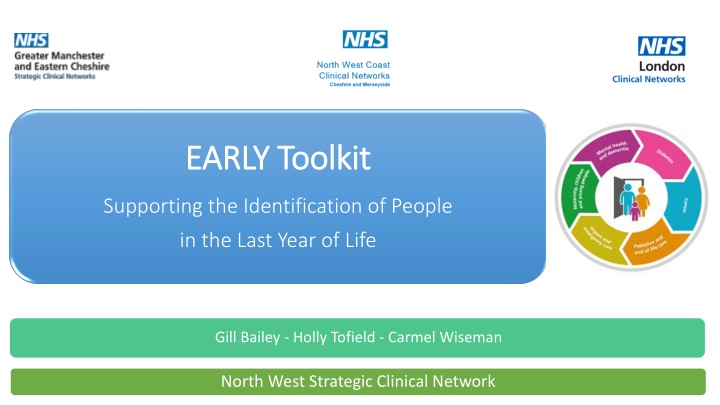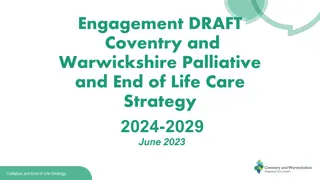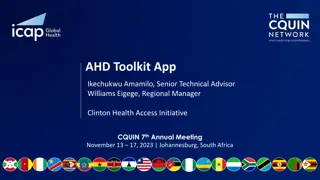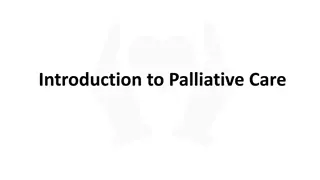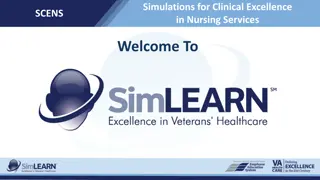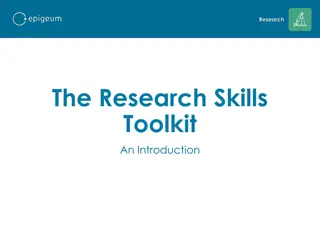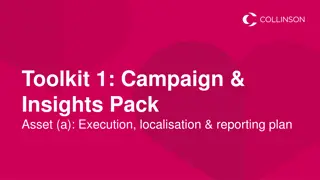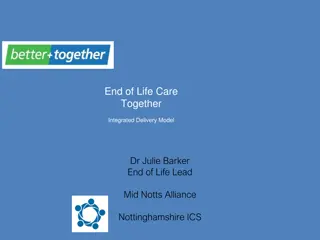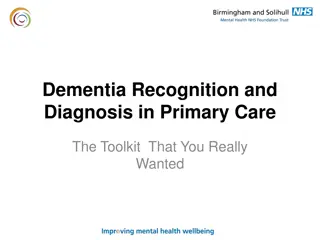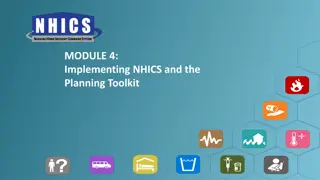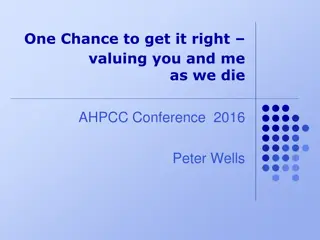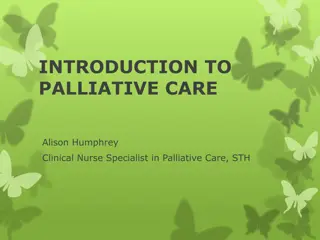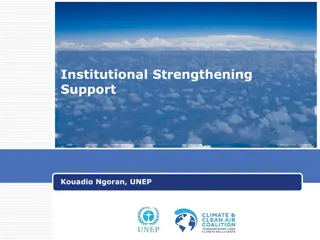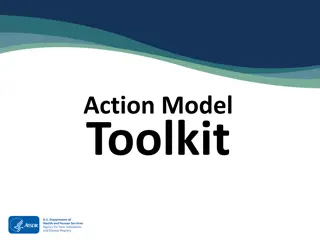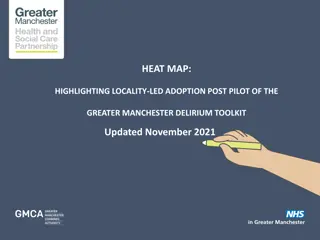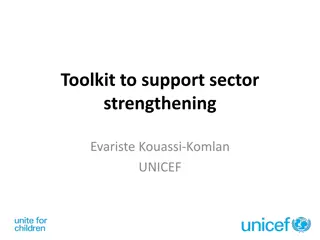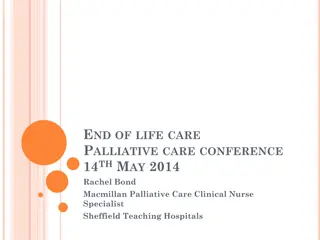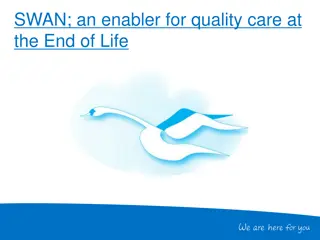Early Toolkit: Supporting End-of-Life Care Planning
The EARLY Toolkit is designed to facilitate the early identification of individuals in the last year of life, allowing for timely engagement in care planning discussions. With a structured approach involving search, advance care planning, record-keeping, and clinical validation, this toolkit aims to enhance personalized care for patients facing end-of-life scenarios. By utilizing key elements and disease coding within GP clinical systems, healthcare professionals can proactively identify patients, initiate crucial conversations, and develop anticipatory management plans. The toolkit emphasizes the importance of involving patients, their families, or carers in decision-making processes to tailor care based on individual preferences and needs.
Download Presentation

Please find below an Image/Link to download the presentation.
The content on the website is provided AS IS for your information and personal use only. It may not be sold, licensed, or shared on other websites without obtaining consent from the author.If you encounter any issues during the download, it is possible that the publisher has removed the file from their server.
You are allowed to download the files provided on this website for personal or commercial use, subject to the condition that they are used lawfully. All files are the property of their respective owners.
The content on the website is provided AS IS for your information and personal use only. It may not be sold, licensed, or shared on other websites without obtaining consent from the author.
E N D
Presentation Transcript
EARLY Toolkit EARLY Toolkit Supporting the Identification of People in the Last Year of Life Gill Bailey - Holly Tofield - Carmel Wiseman North West Strategic Clinical Network
Development of EARLY Toolkit Pilot Introduction National review (2022-2023)
Earlier identification of patients who may be in the last 12 months of their life is important because this provides an opportunity for them (or NOK, carers) to be involved in planning for their future care. Why identification is so important The offer may be declined but can be revisited, is voluntary etc Planning might include thinking about the type of care they would like or would not like, where they would like to be cared for, who should be involved in their care etc. There may also be an opportunity to consider anticipatory clinical management planning
What is EARLY The EARLY toolkit includes a search which can be run in GP clinical system EARLY is an acronym for: E - Early identification The search is based on key elements such as disease coding, number of admissions etc A - Advance care planning R - Record The list produced is divided into broad disease headings L - Look again Y - You can continually improve The individuals on the list must then be clinically validated as being in the last year of life as the search is not 100% sensitive NHS England and NHS Improvement North West EARLY Toolkit for Primary Care NHS England and NHS Improvement North West EARLY Toolkit for Primary Care NHS England and NHS Improvement North West EARLY Toolkit for Primary Care
Clinical Validation Clinically validate the list Would I be surprised if this patient died in the next 12m Decide if appropriate to approach EOLC discussions and if so, offer the opportunity to engage Conversations may then develop into planning, ACP, anticipatory clinical management plans
National EOLC EARLY Identification and Personalised Care Planning Personalised Care Support Planning Personalised Care & Support Planning Clinical Validation Review Evaluation 5 Step Approach Sharing Information Health Inequalities Clinical Validation Review & Evaluation 5 Step Approach Sharing Information Health Inequalities Introduction Identification Introduction Identification 1 IDENTIFICATION Run EARLY Identification Search Tool IDENTIFICATION Run EARLY Identification Search Tool 2 CLINICAL VALIDATION Clinical review of the list of patients generated CLINICAL VALIDATION Clinical review of the list of patients generated PERSONALISED CARE SUPPORT PLANNING Contact patient and/ or family (where appropriate) to offer discussion about personalised care planning PERSONALISED CARE & SUPPORT PLANNING Consider support from health and social care partners DECLINE Contact patient and/ or family (where appropriate) to offer discussionabout personalised care planning ACCEPT SHARING INFORMATION Begin discussion, complete documentation, ongoing referrals etc. (A copy should be offered to the patient) Outcomes should be coded on the GP IT System (SNOMED CT) SHARING INFORMATION Begin discussion, complete documentation, ongoing referrals etc. (A copy should be offered to the patient) Outcomes should be coded on the GP IT System (SNOMED CT) REVIEW EVALUATION The care plan should be reviewed and updated regularly Ongoing feedback from patients and staff should be obtained REVIEW & EVALUATION The care plan should be reviewed and updated regularly Ongoing feedback from patients and staff should be obtained
Diagram Graphical user interface, text, application Description automatically generated with low confidence Description automatically generated National Guidance
Next Steps Encourage feedback for next review 2024/25 Wider Patient evaluation Practice evaluation implementation of EARLY
Contact Details england.early@nhs.net england.early@nhs.net gillian.bailey3@nhs.net Greater Manchester & Eastern Cheshire holly.tofield1@nhs.net Cheshire & Merseyside Carmel.wiseman@nhs.net Carmel.wiseman@nhs.net Lancashire & South Cumbria
